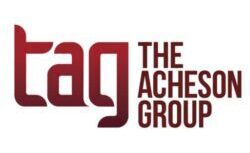In 2019, we told you about FDA issuing its first Foreign Supplier Verification Program (FSVP) warning letter and increasing import regulation (which became a top-read article of 2019). Earlier this year, we added our 2020 expectations that FSVP will be even more tightly focused this year and “companies will be found at fault (i.e., issued a 483) for not having a properly written FSVP and/or lack of proof that the foreign supplier is producing safe food.” It seems that our expectations are already proving out – FDA is issuing both 483s and warning letters for FSVP non-compliance. As pointed out in a recent FSN article, warning letters are often not issued until a company has had a significant amount of time to correct a problem – likely originally noted in a 483 observation. Additionally, warning letters are not necessarily publicly posted right away. Thus, there could be significantly more non-compliance issues than the two discussed by FSN. All this is to say that FDA is definitely now regulating (not just educating) against the FSVP requirements. Thus, it is prudent that all who utilize foreign suppliers understand the rule and what it takes to be FSVP compliant. FSVP Basics. At its most basic, as described by FDA, the FSVP rule requires that the U.S. owner or consignee of a food offered for import verify that the food meets U.S. safety standards. As such, for each (non-exempt) food imported, the importer is to use a qualified individual to develop, maintain, and perform FSVP activities to include: Perform a hazard analysis that identifies known or reasonably foreseeable hazards for each type of food and determine whether they require a control. Evaluate risks of the food and foreign supplier, considering the food’s hazard analysis; the entity applying hazard controls; and the foreign supplier’s food safety practices and procedures, compliance with applicable U.S. food safety regulations, and food safety performance history. Conduct supplier verification activities to assure that the hazards requiring a control have been significantly minimized or prevented (e.g., through annual onsite audits by a qualified auditor, sampling and testing, food safety records review, etc.). Take any needed corrective actions, investigating the adequacy of the FSVP, as applicable. Reevaluate the food and foreign supplier every three years, or sooner if there is new information about the hazards of either. When filing for entry with U.S. Customs and Border Protection, identify the FSVP importer by its name, electronic mailing address, and DUNS number. In October 2019, FDA published a list of FSVP recordkeeping requirements, which we discussed in the newsletter FSVP Recordkeeping Can Strengthen Your Supply Chain. FDA has stated that FSVP obligations can be met through analyses, evaluations, and activities performed by other entities as long as the FSVP importer reviews and assesses corresponding documentation. However, it is critical to understand that an FSVP must be developed for each food imported, including spices, condiments, etc. FDA investigators will review the FSVP for each imported food, and issue a 483 and/or warning letter if any food is not covered – as the agency did for the black pepper powder imported by Swagath Home Foods and the mayonnaise, tomatoes-spice flavored drink, and punch-flavored soft drinks imported by Dinamix Distribution. As then-Acting Commissioner Ned Sharpless said in 2019, “Moving forward, the FDA will take more steps to ensure compliance with FSVP, including reinspecting importers that had deficiencies in previous inspections and by acting immediately when FSVP deficiencies are found that pose an imminent public health risk.” It has become evident that FDA is doing all this … and more. Being compliant with FSVP is important for all those importing FDA-regulated foods into the U.S. But if you have to be compliant with the Preventive Control rules there are components of the rule around supplier risk control that may mean you do not need a specific FSVP. Being compliant with FSVP is not difficult, but you do need to know what you are doing and TAG’s team of subject matter experts can work with you to ensure your FSVP – and all your supply chain programs – are in compliance with the FSMA rules and truly help mitigate risk and protect your brand. Give us a call today! About The Acheson Group (TAG): Led by Former FDA Associate Commissioner for Foods Dr. David Acheson, TAG is a food safety consulting group that provides guidance and expertise worldwide for companies throughout the food supply chain. With in-depth industry knowledge combined with real-world experience, TAG’s team of food safety experts help companies more effectively mitigate risk, improve operational efficiencies, and ensure regulatory and standards compliance. www.AchesonGroup.com





